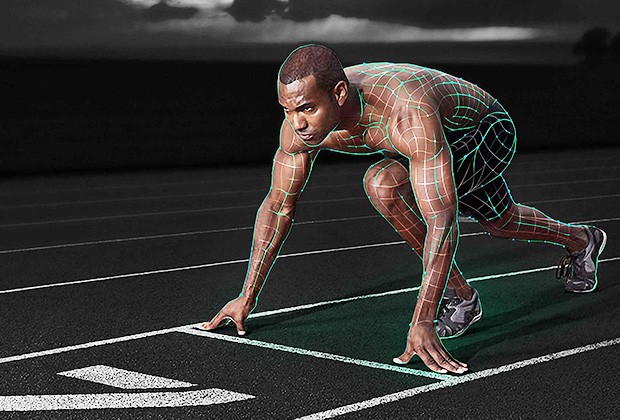A personal trainer you can wear
 Heddoko captures the full mechanical movement of the body using sensors. | Image courtesy of Heddoko
Heddoko captures the full mechanical movement of the body using sensors. | Image courtesy of Heddoko
Imagine a workout suit that not only tracks your movements but also corrects your form when you’re trying to perfect your downward dog or golf swing.
It may sound futuristic, but it’s a lot closer to being a reality than you may think.
Heddoko is a compression suit outfitted with sensors to capture body movement in 3D and then feed the data it collects back to you via a smartphone application.
It’s still in the prototyping stage — no commercial product for purchase exists as of yet — but it’s already captured international attention.
The suit was already shortlisted as a finalist for the Innovator of the Year award, to be presented at the WT Wearable Technologies Innovation World Cup in Munich, Germany, on February 2.
Heddoko is unique in the wearable technology world in that it captures movement. Most competitors capture only biometric data, like heart and breathing rates.
“We really capture the full mechanical movement of the body using those sensors,” says Mazen Elbawab, the co-founder and SEO of Heddoko.
District 3 lends a hand
An amateur mixed martial artist, Elbawab couldn’t afford to have a coach by his side every time he wanted to train, so he dreamt up Heddoko as a sort of complementary coaching device.
Last February, Elbawab brought his nascent idea to Xavier-Henri Hervé at Concordia’s District 3, a hub for innovation and entrepreneurship that is open to those inside and outside the community.
“When he came in May to see me, he had not much more than an idea. He didn’t really have a team, didn’t have a product — very little was materialized. He had this idea and the audacity and the energy to make a life change and dedicate himself to it,” Hervé says.
A former game developer at Ubisoft, the 32-year-old Elbawab had experience in motion capture and programming, but not in building hardware. His co-founder, the 39-year-old Alexandre Fainberg, is the business end of Heddoko.
To build the product, they needed engineers and money — and that’s where District 3 came in. Hervé helped the co-founders secure grant money and more than a dozen team members. Since July, Heddoko has produced four prototypes.
Elbawab also got extra help and mentorship from the Founder Institute, a four-month accelerator program with a Montreal franchise. He graduated from its first cohort last summer.
Montreal wearables get noticed
Wearable technology has made huge strides in recent years. Hexoskin, also from Montreal, produces a line of sensor-laden shirts that collect biometric data. Their shirts are now used within NASA.
Heddoko, however, measures skeletal movement — the angle your joints bend at, the stance you use when weightlifting or golfing, or the position of your spine during yoga.
“We are approaching it from a different perspective, which is the full mechanical movement of the body,” Elbawab says. “We’re the only ones who do the biomechanical tracking.”
The co-founders’ initial goal is to get Heddoko into the hands of professional athletes, coaches and sports teams. Their long-term plans are even more ambitious.
“The end goal is really to get this into the locker room of everyone who wants to train,” Elbawab says.
Once it’s built, the device will allow amateur and professional athletes — along with people who just like to train hard — to track performance and progress, as well as reduce the risk of injury due to improper movements. The data collected can then be shared with the people who need to know, like coaches and physiotherapists.
Heddoko intends to launch a crowdfunding campaign in the summer, once the co-founders have secured a suitable manufacturer.
“This is between game development and being a geek and doing sports. This is the resumé of my life,” Elbawab says.
Find out more about District 3.